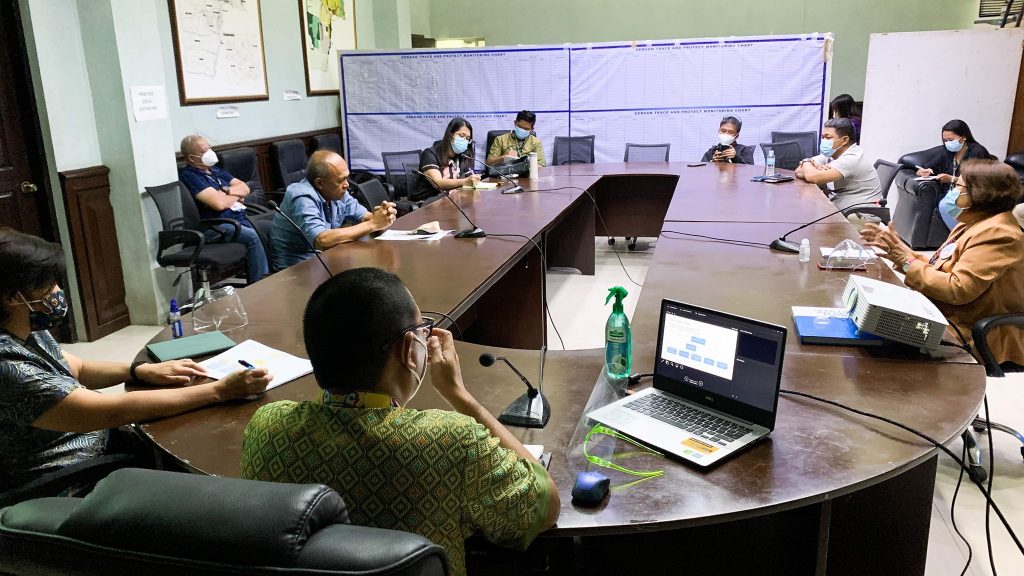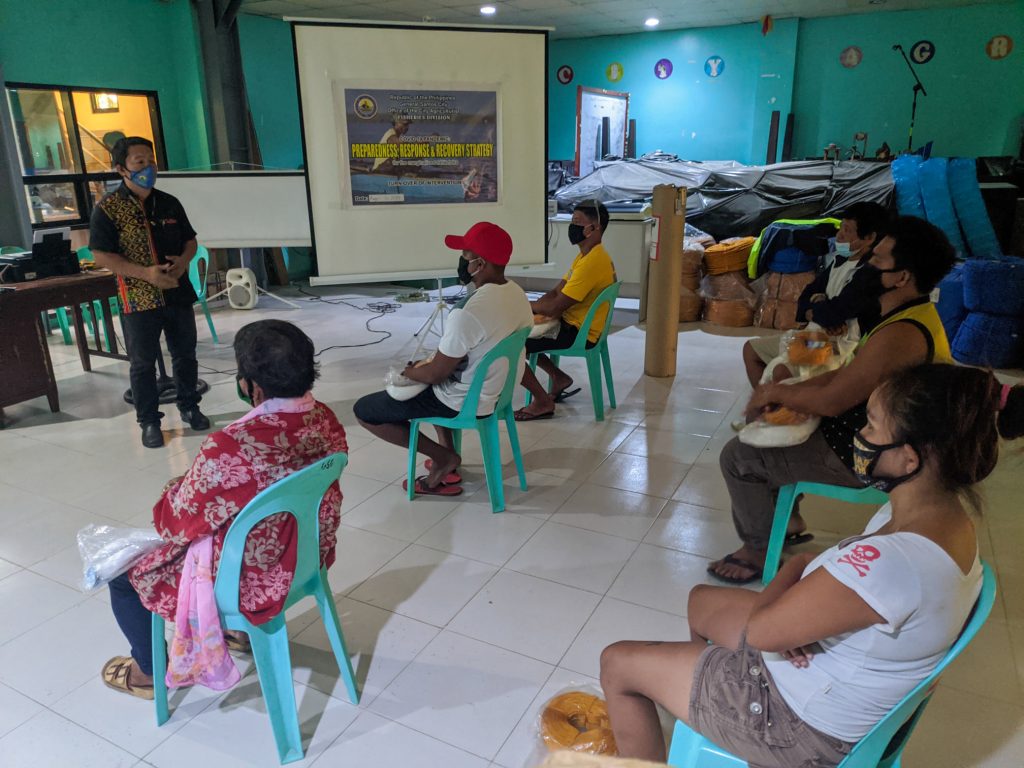Title
General Santos City COVID-19 Preparedness and Response Plan (COVID-19 PRP)
Organization
City Government of General Santos
Best Practice Focus Area/s
Leadership, Strategy
Year Implemented
February 1, 2020
Summary
The COVID-19 Preparedness and Response Plan enables the General Santos LGU to implement short-term actions and future strategic interventions to address COVID-19 and other similar risks. The PRP defines the responsibilities of multiple local actors in managing and coordinating the various initiatives and measures both for response to and recovery from the pandemic.
Background and Problem
On March 16, 2020, the Office of the President issued Proclamations No. 922 and No. 929, s. 2020, which declared a state of public health emergency and a state of calamity throughout the Philippines, respectively, in response to COVID-19. These declarations enjoined all government agencies and LGUs to render full assistance and cooperation in mobilizing the necessary resources to appropriately curtail and eliminate the threat of COVID-19.
General Santos City, being the center of commerce, trade, and health facilities in the Soccsksargen region, faced the risk of a major outbreak. The LGU needed to monitor the situation closely and communicate with neighboring areas on the status of infection in the city. They also needed to orient and educate local institutions and businesses so that when the LGU implements extraordinary public health and infection control measures, citizens will be able to understand and comply.
Solution and Impact
The COVID-19 Preparedness and Response Plan (PRP) is the General Santos LGU’s attempt to create a working document containing the actions and strategic interventions to be implemented in the event of another pandemic or health emergency in General Santos City.

The COVID-19 PRP contains the LGU’s redirected priorities for measures that will mitigate COVID-19 transmission, stabilize the economy, and ensure that its constituents are well-managed and provided with their basic needs. It allows for the mobilization of its communities and various institutions for cooperation and resourcefulness so that all endeavors are synchronized and well-coordinated.
The PRP consolidated the efforts of the following governing bodies and defined their responsibilities in managing and coordinating LGU initiatives and measures to address the threat of COVID-19 and other emerging infectious diseases:
- Crisis Management Team – The team is tasked to act on potential problems or risks in the city government workplace, and take other actions needed to address the pandemic.
- Local Inter-Agency Task Force for the Management of Emerging And Re-Emerging Infectious Diseases (IATF-MERID) – The structure of the IATF was later revised to include five (5) clusters, namely: Quarantine Service Cluster, Hospital Service Cluster, Public Health Service Cluster, Social Services Cluster, and Law and Order Service Cluster. A Data Management Team was also created which gave rise to the Trace and Protect Action Team (TEAM) System for Contact Tracing.
- Incident Command – The Incident Command is responsible for the overall management of COVID-19 incident operations. The IATF, which is linked to the Incident Command, is headed by the City Mayor, who has the overall responsibility to supervise and exercise discretion on all matters related to COVID-19 response and relief.
- Emergency Operations Center (EOC) – The EOC serves as the repository of information and main hub for coordination to support incident management (on-scene operations). The Command Center 24/7 COVID Hotline Operation Center is installed at the EOC.
- Response And Recovery Plan (RRP) Team – The RRP Team was created as a forward planning team for the preparation of a pandemic RRP.

Milestones/Next Steps
The PRP was later combined with the General Santos LGU’s Trace and Protect Action Team (TAPAT) System under the Response, Control, and Recovery (RCR) Initiative, which is a collection of plans and actions incorporating embedded geospatial and spatial-statistical analysis of the geographic dimension of COVID-19.
